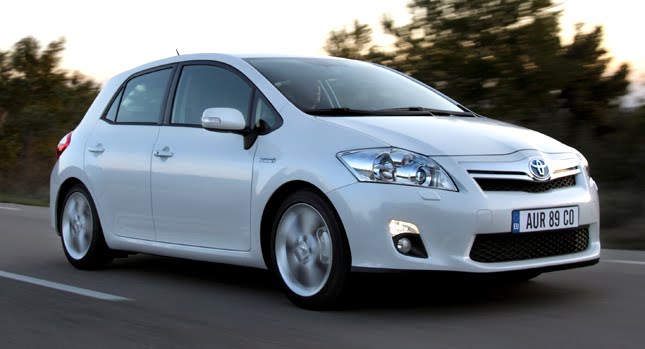There’s a change of production plans for Toyota’s next generation of C-segment hatchback and sedan models in Europe.
According to an announcement made today, the Japanese automaker will invest €265 million (US$355 million) to produce the replacements of the Auris 3-door and 5-door hatchbacks at its UK assembly plant and add C-segment sedan production in Turkey.
Currently, the Auris is manufactured both in Britain (petrol, diesel and hybrid versions) and in Turkey (petrol and diesel models). The move will merge production of Toyota’s next Golf-rivaling hatchback at Toyota Motor Manufacturing UK (TMUK), which expects to recruit up to 1,500 additional workers, with a first enrollment phase of around 500 employees from the middle of 2012.
Toyota said that by regrouping production of the next Auris hatchback, it will “achieve a higher utilisation ratio of the existing production capacity at the plant, hereby leading to higher efficiency”.
As part of the new plan, the Japanese company’s next C-segment sedan that will replace the Corolla, which currently offered in select European markets such as Hungary, Greece, Portugal, Bulgaria and Poland, will be assembled alongside the Verso at Toyota’s facility in Sakarya, Turkey.
TMMT (Toyota Motor Manufacturing Turkey) said it expects to recruit an additional 400 workers in the next two years, starting in the second half of 2012.
“This announcement further endorses the importance of TMUK and TMMT as production centres for Toyota in Europe and is in line with our plan to increase local production for cars sold in Europe,” said Didier Leroy, President and CEO of Toyota Motor Europe.
“The C-segment hatchback is a core vehicle for Toyota, competing in a strategic segment of the European automobile market, while sedans are stronger sellers in Eastern Europe, Turkey and other countries in that region. We are confident that our factories in UK and Turkey, supported by committed workers and suppliers, will continue to deliver superior quality vehicles and contribute to Toyota’s sustainable growth in Europe in the future.”















